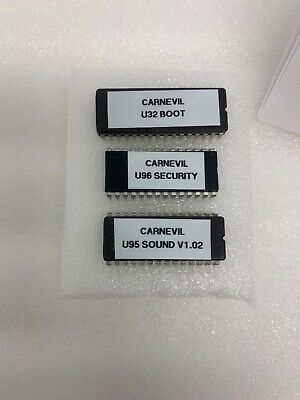- Introduction
- The Importance of bmc remedy export xml attachments Properly
- The Risk of Corrupt Files in BMC Remedy Export
- Common Causes of File Corruption bmc remedy export xml attachments
- How to Prevent File Corruption in BMC Remedy Export
- Alternative Solutions for Managing XML Attachments
- Conclusion: Ensuring Safe and Efficient BMC Remedy Export with bmc remedy export xml attachments
- FAQ’s
- General Information
- Export Process
- Troubleshooting and Support
Introduction
Managing IT services can be a complex task, and BMC Remedy is a powerful tool that helps streamline this process. One of its essential features is the ability to export XML attachments, which allows users to store and share crucial data efficiently. However, as beneficial as this functionality may be, it comes with certain risks that can lead to file corruption. When files become corrupted during the export process, it can cause significant disruptions in workflows and access to vital information.
Understanding how to navigate these challenges is key for any organization relying on BMC Remedy’s capabilities. This article will delve into why properly handling BMC Remedy export XML attachments matters so much while highlighting potential pitfalls along the way. Let’s explore how you can prevent file corruption and ensure smooth operations within your IT environment.
The Importance of bmc remedy export xml attachments Properly
BMC Remedy export XML attachments play a crucial role in data management. They facilitate the transfer of vital information across various systems, ensuring seamless integration and accessibility.
Proper handling of these files is essential for maintaining data integrity. When exported correctly, they retain their structure and meaning, making them easy to manipulate or analyze later.
Moreover, accurate exports help streamline workflows. Teams can quickly access necessary documents without delays caused by formatting issues or lost information.
Additionally, properly managed XML attachments enhance collaboration among team members. Everyone can work with the same reliable data set, minimizing confusion and reducing errors that often arise from miscommunication.
A well-executed export process reduces risks associated with data loss or corruption. By prioritizing proper techniques in exporting BMC Remedy XML attachments, organizations safeguard their valuable assets while promoting efficiency and productivity within their operations.
The Risk of Corrupt Files in BMC Remedy Export
When dealing with BMC Remedy export XML attachments, the risk of corrupt files is a significant concern. Corruption can occur at any stage, from creation to transfer and storage.
One common issue arises during file transfers. If there’s an interruption or network glitch, the resulting file may be incomplete or unreadable. This can lead to lost data that’s crucial for your operations.
In addition, improper handling of the XML format itself can introduce errors. Even minor changes in syntax can render a file unusable.
Software compatibility also plays a role; using outdated applications might not correctly interpret newer XML standards, leading to corruption over time.
Human error remains a constant threat—accidental deletions or misconfigurations are all too common in busy environments where multiple users interact with these files regularly.
Common Causes of File Corruption bmc remedy export xml attachments
File corruption during BMC Remedy export of XML attachments can stem from various issues. One common cause is network instability. A sudden drop in connection while files are being transferred may lead to incomplete or damaged attachments.
Another factor is software compatibility. Using outdated or mismatched versions of software can create discrepancies, making it difficult for the system to properly read and process the XML files.
Improper handling of the files also plays a role. If users attempt to edit an exported file without appropriate tools, they risk introducing errors that compromise data integrity.
Hardware failures cannot be overlooked. Hard drive malfunctions or memory issues might corrupt files during storage, leading to significant challenges when accessing critical information later on.
How to Prevent File Corruption in BMC Remedy Export
To prevent file corruption in BMC Remedy export XML attachments, start by ensuring your software is up to date. Updated systems are less prone to bugs that can lead to issues during the export process.
Next, maintain a stable network connection throughout the export operation. Interruptions or fluctuations can easily compromise data integrity. If possible, use wired connections instead of wireless for greater reliability.
Regular backups of your files are also essential. This way, if any corruption occurs, you won’t lose critical information and can restore from a previous version effortlessly.
Additionally, monitor system resources like memory and disk space while exporting files. Low resources could trigger errors that may corrupt your attachments unexpectedly.
Consider using validation tools post-export to check for inconsistencies and ensure all data remains intact before relying on it for further processes or storage.
Alternative Solutions for Managing XML Attachments
When dealing with BMC Remedy export XML attachments, exploring alternative solutions can streamline your process. One option is utilizing cloud storage services. These platforms not only offer ample space but also ensure data integrity through automatic backups.
Another effective method involves adopting specialized software designed for XML management. Such tools often provide enhanced features like validation and error detection, making it easier to manage large volumes of attachments without risk.
Additionally, integrating an API can automate the handling of these files. This reduces manual intervention and minimizes errors during exports.
Consider using version control systems as well. They help track changes made to your XML files over time, allowing for seamless collaboration among team members while retaining previous versions when necessary.
Embracing these alternatives will improve efficiency and reduce potential risks associated with file corruption in BMC Remedy export XML attachments.
Conclusion: Ensuring Safe and Efficient BMC Remedy Export with bmc remedy export xml attachments
Ensuring safe and efficient BMC Remedy export with XML attachments is a critical aspect of managing your data effectively. The potential risks associated with file corruption can lead to significant setbacks, especially when dealing with vital information.
By understanding the importance of proper handling during exports, you can mitigate the chances of encountering issues. Being aware of common causes for file corruption—such as improper network connections or software errors—allows you to take proactive measures.
Implementing best practices for prevention will not only safeguard your files but also enhance your overall workflow. Furthermore, exploring alternative solutions may provide more secure ways to manage your XML attachments without compromising data integrity.
Prioritizing safety in BMC Remedy operations ensures that your processes remain smooth and reliable while maximizing efficiency in exporting XML attachments.
FAQ’s
General Information
BMC Remedy is an IT service management tool for automating business processes.
XML attachments are files containing data in XML format linked to Remedy tickets or records.
Exporting XML attachments helps in data migration, backup, and integration with other systems.
Export Process
Use the BMC Remedy’s export function within the interface or through its API to save XML attachments.
Yes, you can automate exports using BMC Remedy’s workflow or scripting features.
Check BMC Remedy’s documentation for any limitations on file sizes during export.
Troubleshooting and Support
Review error logs, check permissions, and ensure no network issues are causing the problem.
Open the XML files in an XML editor or validator to ensure they are correctly formatted.
Yes, you can filter and export attachments based on criteria or record selection.
Contact BMC Remedy support or consult the user manual for detailed troubleshooting steps.



